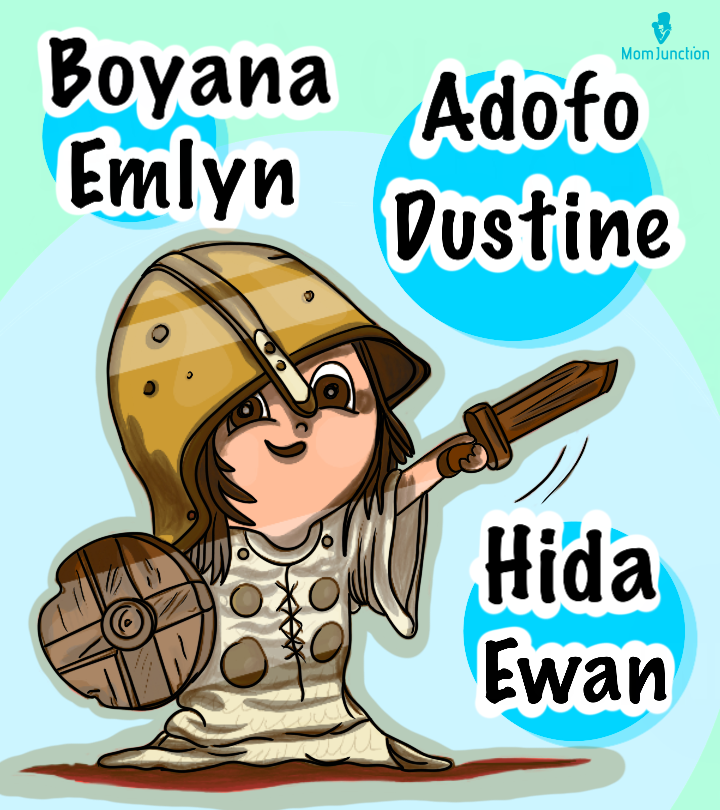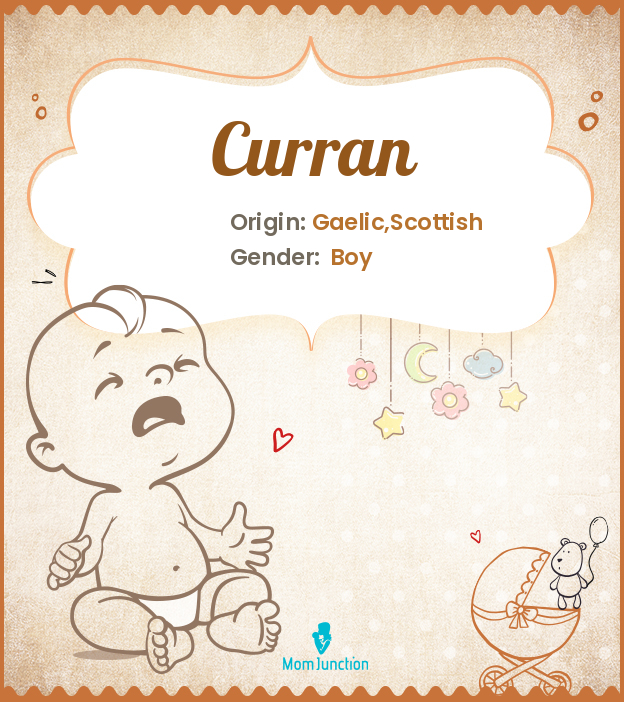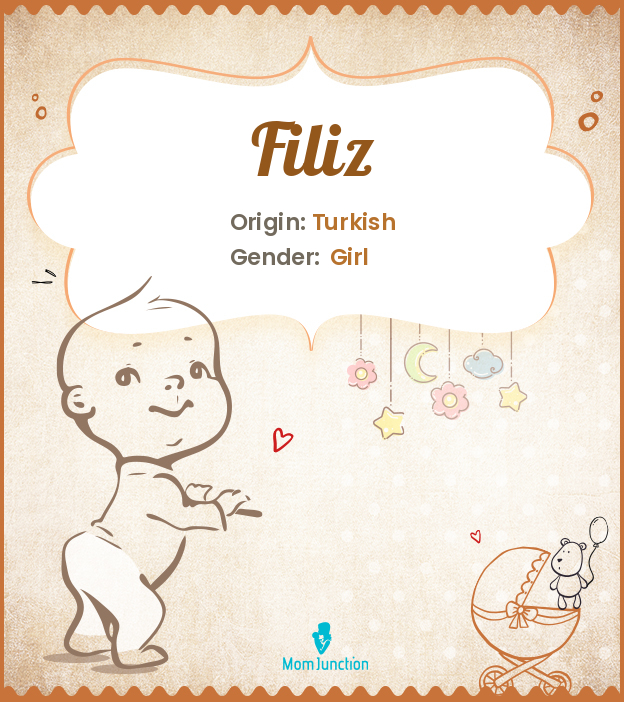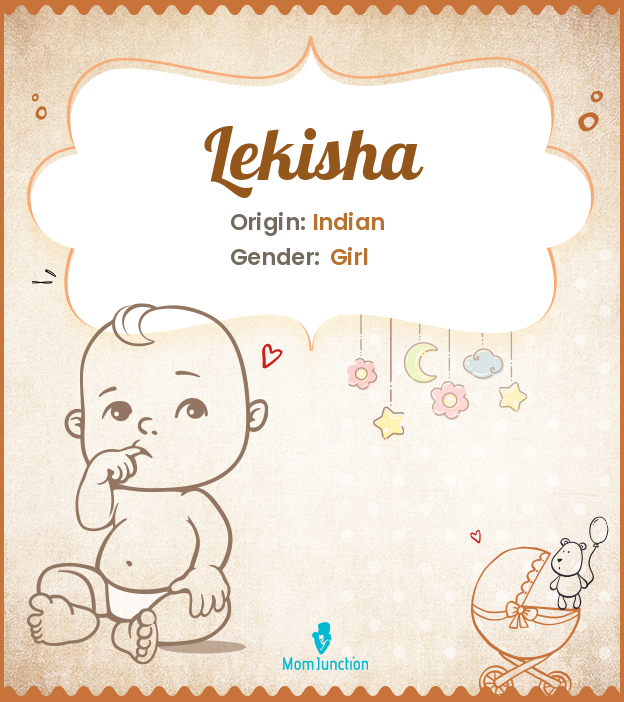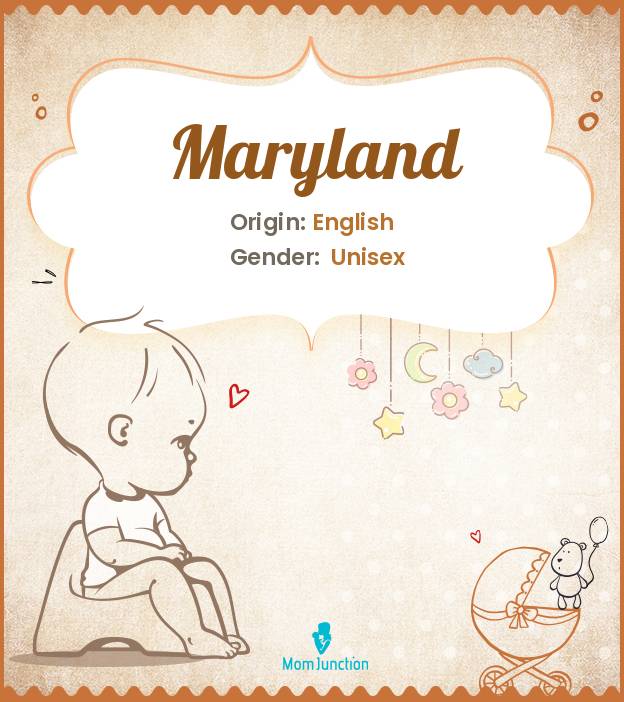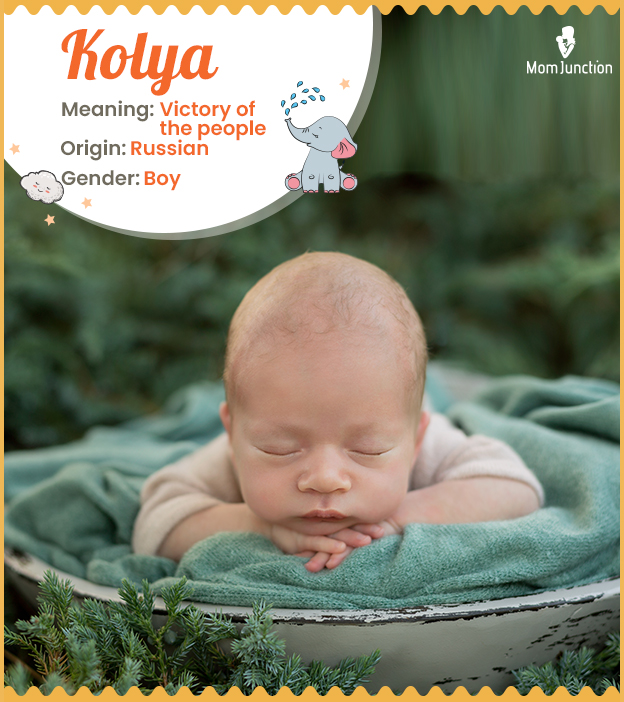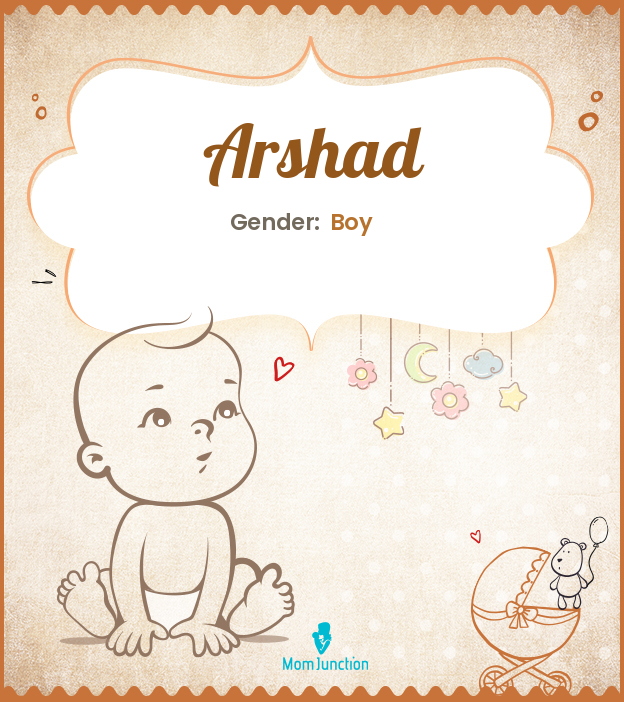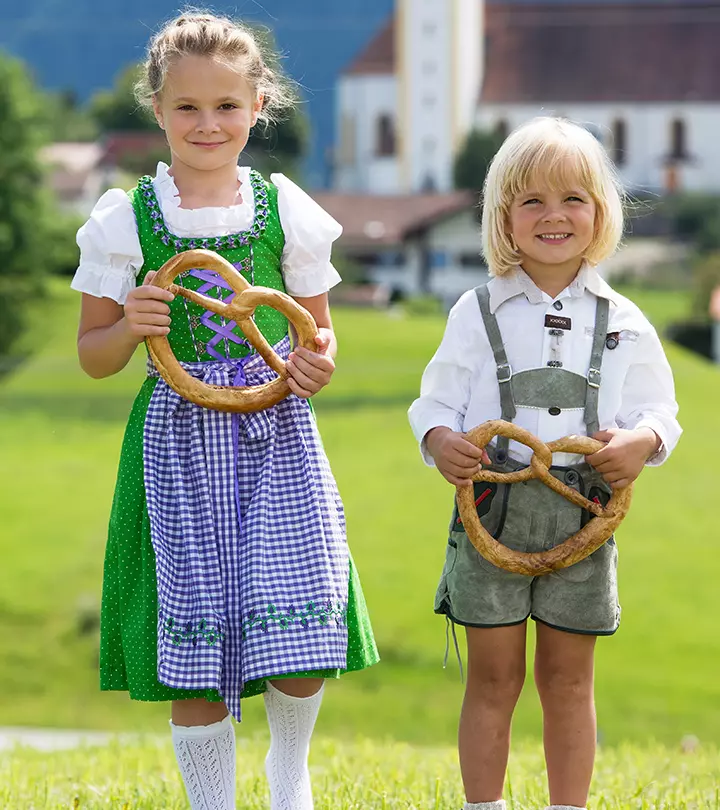
Image: Shutterstock

Old German names carry powerful and vivid connotations, drawing inspiration from the battles they have fought, formidable animals, and also the long history of saints and rulers. The majority of Old German names have been adapted to fit the contemporary world. Names such as Farahild, Friduric, and Adalwolf are Old German spellings of names such as Pharaildis, Frederick, and Adolf. One unique feature of German names is that Johannes or Johann, and Maria or Anna were used as common first names for German children. It is common to see German children with two first names, but their second name is commonly used. For example, a boy named Johanne Gasto is usually referred to using the second name Gasto. This practice started during the Medieval period. Dive into a world of exquisite Old German names and you may guess which names have survived the test of time.
Key Pointers
- Old German names often have two meanings that combine to form a complete meaning of the name.
- Many Old German names sound similar because they consist of the same prefixes or suffixes, such as adal, adel, hild, and rich.
- A few common meanings among Old German names are noble, bright, battle, and war.
200+ Old German Names With Meanings
From noble rulers to revered saints, explore our extensive list of Old German names and find the one that suits you best.
Old German Girl Names
German names for girls have an aura of grace, elegance, charm, and strength. Check out our collection here.
1. Aanord
Aanord is the contracted spelling of Adamardis or Adenordis. It could also be spelled as Adenordis, Adamardis, and Aenor. It means ‘famous wealth.’
2. Aclewalda
A name that is used in Germanic, Medieval French, and Frankish-speaking communities. Taken from the Old French ‘agil,’ meaning ‘blade,’ combined with the Old Saxon ‘wald’ or Old High German ‘walt,’ meaning ‘power,’ Aclewalda means ‘blade power.’
3. Ada
Ada started as a shortened form of Germanic names that begin with the same element ‘adal,’ which means ‘noble.’ A few examples are Adelaide and Adelina.
4. Adalgund
Similar to Aldegund, Adalgund contains Old German elements such as ‘adal’ and ‘gunda,’ meaning ‘noble battle.’
5. Adalhaid
It is an Old German spelling of Adelaide that comes from the German name Adalheidis, meaning ‘nobleness’ or ‘nobility.’
6. Adallinda
Adallinda was the name of the Former Holy Roman emperor Charlemagne’s concubine. It is made up of two Germanic elements, ‘adal’ and ‘lind,’ meaning ‘noble’ and ‘tender.’
7. Adela
Adela is another German name that was first used as a shortened form of other Germanic names. It comes from the Old German element ‘adal,’ meaning ‘noble.’ Adela was also the name of William the Conqueror’s daughter.
8. Aenor
Although the meaning of Aenor is not determined, it is an important name in history. Aenor was the name of the mother of Eleanor of Aquitaine.
9. Alba
Oftentimes, short Germanic names originated as short forms beginning with certain elements. Alba comes from the Germanic element ‘alb,’ meaning ‘elf.’
10. Aldegund
It is assumed that Adelgund is the metathesis of Adalgund. The name comes from the German elements ‘alt’ and ‘gunda,’ meaning ‘old war.’
11. Amalberga
Amalberga is the German spelling variant of Amalaberga, a Gothic name. It carries the connotations of ‘unceasing,’ ‘brave,’ or ‘vigorous.’
12. Amalia
Inspired by the Gothic dynasty of the Amali, Amalia was used as a shortened form for names that begin with the element ‘amal,’ which means ‘unceasing,’ ‘brave,’ or ‘vigorous.’
13. Auda
Derived from the masculine name Otto, Auda is its feminine form. It is a name with Old Frankish elements that mean ‘wealth’ or ‘fortune.’
14. Audovera
Audovera was the name of the first wife of Chilperic I of Neustria. It is a Germanic name with Old Frankish roots. It means ‘true wealth’ or ‘true fortune.’
15. Ava
The exact meaning of Ava is not certain, but it was used as a shortened form of Germanic names beginning with the ‘awi’ element.
16. Avila
Another German name with an uncertain meaning. It comes from the Old German element ‘awi.’ The name was borne by Saint Avila who derived her name from the Spanish town she was born in.
17. Balthild
A mighty name for a girl that has its roots in the Old German elements. From ‘bald’ and ‘hilt,’ it means ‘brave battle.’
18. Berengaria
An elite name that was once borne by the 13th-century queen of Castile. It is the Latinized and feminine form of Berengar, an Old German name that means ‘bear spear.’
19. Berentrud
The German name combines the Proto-Germanic element ‘beran’ or ‘bernu,’ meaning ‘bear,’ and ‘þruþ,’ meaning ‘strength.’ Berentrud means ‘bear strength.’
20. Bertha
Bertha was originally used as a short form of Germanic names that begin with the Old Frankish or Old Saxon element ‘berht,’ which means ‘bright.’ This was also the name of Charlemagne’s mother.
21. Berthild
German names have existed for centuries and Berthild was the name of a 7th-century saint. It comes from two Germanic elements that mean ‘bright battle.’
22. Brunhild
The name is famous in Old Norse legend. It is associated with Brynhildr who was the queen of the Valkyries. Taken from Old German elements, Brunhild means ‘battle armor.’
23. Chlodechilda
Chlodechilda can be associated with the Frankish Clotilde. It is a Germanic name with Frankish elements that carries the connotation of ‘famous battle’ or ‘loud battle.’
24. Emma
Initially used as a short name for Germanic names beginning with the element ‘irmi,’ which means ‘great’ or ‘whole.’ The name was brought to England by Emma of Normandy who was the wife of King Ethelred II and later King Canute.
25. Ermelinde
Formed by combining two Germanic elements, ‘irmin’ and ‘lind,’ Ermelinde can mean ‘whole and soft’ or ‘great and tender.’
26. Ermendrud
In German, names beginning with Erme come from the Old Germanic element ‘irmin,’ which means ‘whole’ or ‘great.’ Ermendrud means ‘whole strength.’
27. Ermengard
Ermengard was the name of the Frankish king Louis the Pious who lived during the 9th century. It means ‘whole enclosure’ or ‘whole yard.’ It can also be spelled as Ermengarde
28. Erminhilt
Taken from the feminine appellation Irmhild, Erminhilt is one of the Old German spellings. It carries the connotation of ‘great battle.’
29. Farahild
Farahild is the Old German equivalent of Pharaildis. Its meaning comes from combining two Old Germanic elements, ‘fara’ and ‘hilt,’ meaning ‘battle journey.’
30. Farohildis
A Latinized German name that is a spelling variant of Pharaildis. It means ‘battle journey.’
31. Frida
Slightly different from the ferocious meanings of German names, Frida was used as a short form for names that start with the element ‘fridu’ or ‘peace.’
32. Gaizaþrūþiz
Distinctly a German name that comes from Gertrude. Gaizaþrūþiz is a Proto-Germanic reconstruction of the name that means ‘spear of strength.’
33. Genovefa
If you say it out loud, you may recognize the origin of this name. It is the older variation of Genevieve and it has Germanic origins. It could mean ‘clan of women.’
34. Geretrudis
Originating from the Old German name Gertrude, Geretrudis is the Latinized Germanic spelling of the name. It carries the meaning of ‘spear of strength.’
35. Gerhild
A true Germanic name that comes from the elements ‘ger’ and ‘hilt,’ meaning ‘spear’ and ‘battle.’
36. Gerlind
Gerlind is an Old German form of Gerlinde, a Dutch and German appellation. It carries an oxymoronic meaning of ‘soft spear.’
37. Gisila
It is unexpectedly the Old German form of Giselle, a dainty and feminine name. It comes from the Old Germanic element ‘gisal,’ which means ‘hostage’ or ‘pledge.’
38. Goda
As a unisex name, Goda is a Germanic name with two possible meanings. It could either mean ‘good’ or ‘god.’
39. Godeliva
The Latinized German name is the feminine form of Goteleib, another Germanic name that means ‘dear god’ or ‘beloved god.’
40. Grīmahildiz
Grīmahildiz is believed to be a Proto-Germanic reconstruction of two given names, Kriemhild and Grimhilt. Both of the names mean ‘battle mask.’
41. Grimhilt
A name rooted in German mythology, Grimhilt comes from Kriemhild, a name that means ‘battle mask.’ The name can be found in the medieval German saga, the Nibelungenlied.
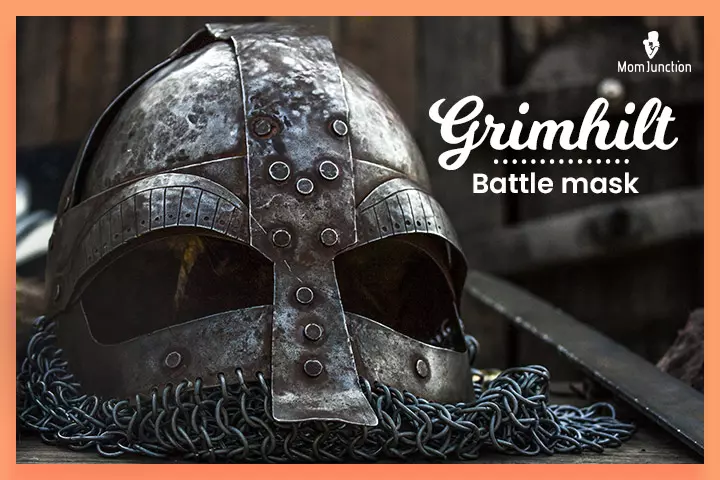
Image: Momjunction Design Team
42. Gunda
Gunda is a popular name in Slavic countries like Sweden, Norway, Denmark, and more. It was used as a short name for names that contain the Old German element ‘gunda,’ which means ‘war.’
43. Hadewidis
Taken from the Germanic elements ‘hadu’ and ‘wit,’ Hadewidis means ‘wide battle.’
44. Hadewig
Taken from the German and Dutch feminine appellation Hedwig, Hadewig is the Old German equivalent. It means ‘battle or war.’
45. Hailwic
Slightly different with opposite meanings, Hailwic is the Old German spelling of Heilwig, a name that means ‘healthy war.’
46. Heilwig
This is a rare Germanic name that comes from two elements, ‘heil’ and ‘wig,’ when combined means ‘healthy war.’
47. Helewidis
This may come as a surprise but Helewidis is the Old German form of Eloise, an Old Germanic name meaning ‘healthy and wide.’
48. Helga
Widely popular in the Scandinavian and European nations, Helga is the feminine form of Helge. It has Old Norse roots and means ‘holy’ and ‘blessed.’
49. Hilda
Hilda is a name with roots in Old Frankish, Old German, and Old English. Each element carries the same meaning of ‘battle.’ The revival of the name was seen during the 19th century.
50. Hildegard
A name borne by the second wife of Charlemagne during the 8th century. The meaning of the name is derived from two Old Germanic elements that mean ‘battle enclosure.’
51. Hildegund
A Germanic name that was borne by a 12th-century saint, Hildegund carries the connotation of ‘battle and war.’
52. Hildigunþī
Considered to be a Proto-Germanic reconstruction of Hildegund and Hildigunnr, Hildigunþī means ‘battle war.’
53. Hilditrut
A powerful German name that comes from the root name Hiltrud. It carries the significant meaning of ‘strength in battle.’
54. Hlūdahildiz
An Old Germanic name that looks a little complex to pronounce. However, it can be enunciated as ‘KHLOO-dhah-kheel-deez.’ It is the Proto-Germanic reconstruction of Chlodechilda, a Frankish appellation that means ‘famous battle.’
55. Hrodohaidis
Can you believe that this four-syllable name is the Old German form of Rose, a name that means ‘famous type.’
56. Hrōþihildiz
Simplifying the pronunciation of Hrōþihildiz, it can be enunciated as ‘KHRAW-thee-kheel-deez.’ It is the reconstruction of Chrodechildis or Clotilde, an Old Germanic name that means ‘great battle.’
57. Hrotsuitha
Derived from the Old German name Hruodsuind or Roswitha, it carries the connotation of ‘fame and strong.’
58. Hruodsuind
Hruodsuind comes from the Old German name Roswitha, which is made up of two German elements that carry the meaning of ‘fame’ and ‘strong.’
59. Ida
A popular feminine appellation in the Slavic and European languages. Ida comes from the Germanic element ‘id,’ which means ‘work’ or ‘labor.’ The name rose in popularity during the 19th century because of Lord Alfred Tennyson’s poem, The Princess.
60. Idalia
Idalia is the Latinized German name that comes from the element ‘idal’ or ‘id,’ which translates to ‘labor’ or ‘work.’ Idalia is one of the names of the Greek goddess Aphrodite.
61. Ima
You think Ima is closely similar to Emma? That is because Ima is the German variant of the name that means ‘great’ or ‘whole.’ It came to England through the Norman conquest.
62. Inga
Inga is used as the feminine form of Inge, a Scandinavian and German name that comes from the Germanic god Ing. Inga is famous in the Slavic countries.
63. Irma
In some cases, Irma is connected to Emma. However, Irma is commonly used as a shortened form of German names that begin with the element ‘irmin,’ which means ‘whole’ or ‘great.’
64. Ishild
Considered to be an early spelling of Iseult, a German name that could mean ‘ice battle.’ It is also presumed that Ishild may have Celtic roots with unknown meanings.
65. Judda
Judda comes from the name of a tribe that originated in Denmark. They were known as the Judds who invaded and settled in England.
66. Leutgard
Leutgard is considered to be the Old Germanic spelling of Luitgard, a name that was borne by Charlamagne’s fifth and last wife. It means ‘people’s yard.’
67. Linda
Here’s one of the popular and elegant baby names in almost every nation and region of the world. Linda has its roots in the Germanic element ‘lind,’ which translates to ‘soft,’ ‘flexible,’ or ‘tender.’ At the same time, it can be associated with the Spanish word ‘linda,’ which means ‘beautiful.’
68. Linza
Linza is the Old German spelling of Linda, a name that could mean ‘soft,’ ‘flexible,’ ‘tender,’ or ‘beautiful.’
69. Lutgardis
Found in German and Flemish-speaking communities, it is considered the Latinized form of Leutgard or Luitgard. It means ‘people’s yard’ or ‘people’s enclosure.’ This name is found in official documents in Flanders, however, it is spelled as Lutgarde casually.
70. Mahthilt
Coming from the German name Matilda, Mahthilt is the Old Germanic spelling. It carries a mighty connotation of ‘strength in battle.’
71. Mahtihildiz
This is the Proto-Germanic reconstruction of Matilda, a Germanic name that means ‘strength in battle.’
72. Mathildis
Originating from the root Germanic name, Matilda, it means ‘strength in battle.’ Mathildis is the Latinized Germanic spelling of the name.
73. Oda
A name that has existed since the 8th century, borne by a semi-legendary saint who lived as a hermit in Brabant, Netherlands. It is the feminine form of Otto, a Late German name that means ‘wealth’ or ‘fortune.’
74. Odila
Taken from the German name Odilia, Odila is the Old Germanic spelling of the name. It comes from the German element ‘uodil’ or ‘ot,’ which means ‘heritage’ or ‘wealth,’ respectively.
75. Odilia
It is the Latinized Germanic name that comes from the Germanic elements ‘uodil,’ which means ‘heritage,’ or ‘ot,’ meaning ‘wealth.’
76. Ólaug
The rare Germanic name comes from combining two Old Germanic elements, ‘ort’ and ‘runa,’ which means ‘rune point.’ The name can be found in the medieval German epic Kudrun.
77. Pharaildis
Not only borne by an 8th-century saint from Ghent, Belgium, this name is a Latinized German name. It comes from the elements ‘fara’ and ‘hilt,’ and when combined, it means ‘battle journey.’
 Did you know?
Did you know?78. Raganhildis
Another Latinized German name that is also an Old Germanic spelling of Reinhild, a German name that means ‘battle advice’ or ‘battle counsel.’
79. Raginahildiz
Pronounced as ‘RAH-ghee-nah-kheel-deez,’ Raginahildiz is the Proto-Germanic reconstruction of Raginhild and Ragnhildr. It means ‘battle advice.’
80. Raginhild
Raginhild is the Old German spelling of Reinhild, a name that means ‘battle counsel.’ It is also a cognate of the Norse name Ragnhild.
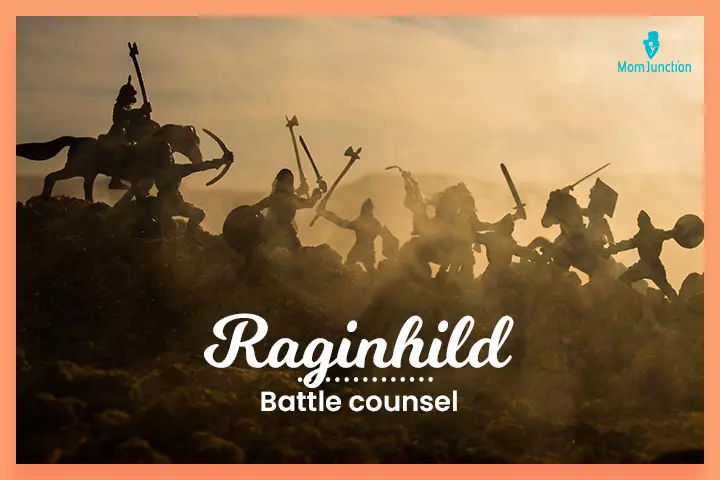
Image: Momjunction Design Team
81. Richardis
There are two possible origins of Richardis. It is assumed to be a feminine form of Ricohard, an Old German variant of Richard. Based on this name, it could mean ‘brave ruler.’ On the other hand, the second element of the name could have been derived from ‘gart,’ which means ‘enclosure.’
82. Ricmod
A unisex name with a royal connotation. It comes from two Germanic elements when combined means ‘spirit ruler.’
83. Romilda
Romilda is not just a German name. It is also used by Italian speakers and it comes from the Germanic elements ‘hurom’ and ‘hilt,’ meaning ‘battle fame’ when combined.
84. Roslindis
A pretty feminine name that is Latinized. Roslindis is the Old German spelling of Rosalind, meaning ‘flexible horse.’
85. Rosmunda
Derived from the root name Rosamund, Rosmunda means ‘horse protection.’
86. Rothaid
Rothaid is an alternate spelling of Hrodohaidis, an Old German spelling of Rose. It carries the connotation of ‘famous type.’
87. Roza
You may think Roza is a spelling variant of Rose, but Roza has its unique origin. It is initially used as a shortened form of Germanic names that begin with the element ‘hroþi’ or ‘hroud,’ meaning ‘fame.’
88. Rumhilt
A name that means ‘battle fame,’ Rumhilt is the Old Germanic spelling of Romilda.
89. Sahsa
Also spelled as Saxa, Sahsa is the Old German spelling of Saskia, a Dutch and German name. It was used as a term for the Saxons, a German tribe who derived their name from the German word ‘sahsą,’ meaning ‘knife.’
90. Saxa
Saxa is the Latinized German name that comes from the Saxon tribe. It could mean ‘a Saxon,’ but upon closer examination, it is a name adopted by the Saxons, a Germanic tribe and means ‘knife.’
91. Sigihild
A triumphant feminine name, Sigihild comes from the given name Sieghild and it means ‘battle victory.’
92. Sigilina
Sigilina is the Old German form of Ségolène, a name that carries a lovely meaning that is ‘victory.’
93. Sigilind
The Old German spelling of Sieglinde has an important place in German mythology. It means ‘soft battle’ or ‘flexible battle.’ Sieglinde is the mother of Siegfried, a German hero in the medieval German saga, The Nibelungenlied.
94. Swanahilda
Taken from the rare German name, Swanhild, Swanahilda means ‘swan battle.’ It was also the name of the second wife of the Frankish ruler Charles Martel.
95. Theodelinda
Originating from the German name Dietlinde, Theodelinda is the Old Germanic spelling of the name. It carries the connotations of ‘soft people.’
96. Theudelinda
Theudelinda is a spelling variant of Theodelinda or Dietlinde, a Germanic name that means ‘flexible people.’
97. Waldeburg
The name is the Old Germanic form of Walburga, which means ‘authority fortress.’ It was borne by an Anglo-Saxon saint who did missionary work in Germany in the 8th century.
98. Waldetrudis
Waldetrudis is the Latinized German spelling of Waltraud. It derives its meaning from the Old German elements ‘walt,’ meaning ‘power’ and ‘authority,’ and ‘drud,’ which means ‘strength.’
99. Wigburg
Taken from the Old German elements, ‘wig’ and ‘burg,’ when combined translates to ‘war fortress.’
100. Willidrud
Willidrud comes from the Germanic name Wiltrud. It is the Old Germanic form of the name and means ‘will and strength.’
101. Wina
A lovely feminine appellation that has its roots in the Germanic element ‘wini,’ which means ‘friend.’
Old German Boy Names
Each name has a story to tell. Explore these Old German names for boys and understand how mighty they are.
102. Adalberht
The Older German spelling is taken from a common masculine name, Albert. It has its roots in German and means ‘noble and bright.’ It can also be spelled as Adalbert, Albert, and Albertus.
103. Adalbern
The masculine name comes from two Germanic elements, ‘adal’ and ‘bern,’ meaning ‘noble bear.’
104. Adalbert
Adalbert is another spelling variant of Albert, a German name that means ‘noble and bright.’ During the earlier days, the name was borne by the patron saint of Bohemia, Poland, and Prussia.
105. Adalfarus
This is a German name, however, it has been Latinized. Its meaning is derived from the Germanic elements ‘adal’ and ‘fara,’ meaning ‘noble journey.’
106. Adalfuns
Taken from the Visigothic name Aþalafuns and the Spanish and Portuguese Alphonsus, Adalfuns has Gothic roots and it means ‘noble and ready.’
107. Adalhard
A name that can be associated with the cousin of Charlemagne. He was an abbot of Corbie. Adalhard has Germanic roots and carries the connotation of ‘noble and brave.’
108. Adalwin
Adalwin is a cognate of Æðelwine and is made up of Old German elements that mean ‘noble friend.’
109. Adalwolf
A powerful-sounding name for boys. Adalwolf is the Old German spelling of Adolf, meaning ‘noble wolf.’ The appeal of this name lies in the fact that there were many Swedish kings who bore this as a first or second name.
110. Adelmar
Sharing its roots with the Old English name Æðelmær, Adelmar carries the connotation of ‘noble and famous.’
111. Adhelm
Do not mistake Adhelm as a patronymic surname just because it carries the meaning of ‘father’s protection.’
112. Badulf
Germanic names often incorporate animals into the meaning of their name and Badulf means ‘battle wolf.’
113. Badurad
The meaning ‘battle’ or ‘war’ is often seen in Germanic names. Badurad comes from two Germanic elements ‘batu’ and ‘rat,’ meaning ‘battle counsel.’
114. Balderich
A promising appellation for a boy, Balderich is the Old German form of Baldric, a name that means ‘bold king’ or ‘brave king.’
115. Baldewin
You may have guessed the name from which Baldewin is derived from. It comes from the Germanic Baldwin, meaning ‘bold friend.’
116. Baldilo
Baldido was originally used as a diminutive of Germanic names that carry the element ‘bald,’ which means ‘bold’ or ‘brave.’
117. Baldo
It is not just a Germanic name but is also used by Spanish and Italian-speaking communities. Baldo comes from the Old German element ‘bald,’ meaning ‘bold’ or ‘brave.’ In Italian, it can be the shortened form of the non-Germanic name Baldassare.
 Quick tip
Quick tip118. Bardulf
A daunting Germanic name that carries the meaning of ‘axe wolf.’
119. Carlman
Carlman comes from Carloman, an Old German name that means ‘man.’ It is also found as Karlman in other languages.
120. Carolus
This is the Latinized Germanic spelling of Charles, taken from Karl. It can either mean ‘man’ or ‘army.’

Image: Momjunction Design Team
121. Charibert
Charibert is an Old German name, specifically the Frankish form of Haribert or Herbert. It comes from two Germanic elements, when combined means ‘bright army.’
122. Chariovalda
Chariovalda is the name of a 1st-century Batavian chief. It is the Latinized form of Hariwald or Harold, a German name that means ‘mighty and powerful army.’
123. Childebert
Taken from Hildebert, Childebert is the Old Germanic or specifically the Frankish form of the name. It means ‘bright battle.’
124. Childeric
A Frankish or Old Germanic spelling of Hilderic, a name once borne by the Vandal king during the 6th century. It comes from two German elements ‘hilt’ and ‘rih,’ meaning ‘battle king.’
125. Chilperic
Closely similar to Childeric, Chilperic is the Old Germanic or Frankish spelling of Hilperic. It comes from the elements ‘helfa’ and ‘rih,’ meaning ‘king’s help.’
126. Chlodochar
Taken from a distinctly German name, Chlodochar is the Old German form of Lothar. It means ‘famous army.’
127. Chlodovech
Chlodovech comes from Chlodovechus, a Latinized form of Hludwig or Ludwig. It carries the connotation of ‘famous in battle.’
128. Chlodulf
Taken from the German name Ludolf, Chlodulf is the Old German spelling of the name. It could either mean ‘loud wolf’ or ‘famous wolf.’
129. Chlothar
Chlothar comes from the German name Lothar and is the Old German form for it. It carries the connotations of ‘famous army’ or ‘loud army.’
130. Clodovicus
Closely similar to Chlodovech, Clodovicus is the Latinized Germanic spelling of the name that comes from Hludwig or Ludwig. It carries the connotations of ‘famous in battle.’
131. Conrad
Conrad is used as an English and Germanic name. It carries the connotation of ‘brave counsel.’ In English, it is pronounced as ‘KAHN-rad,’ while in German, it is enunciated as ‘KAWN-rat.’
132. Dagobert
A combination of Frankish and Old German elements, Dagobert comes from the Frankisj ‘dag,’ and the Old Germanic ‘tag,’ and it means ‘bright day.’
133. Eberhard
A name borne by the 9th-century Duke of Friuli and a 12th-century German archbishop of Salzburg. Eberhard is composed of two Germanic elements meaning ‘brave boar.’
134. Eberwin
Eberwin is a Germanic name composed of two Germanic elements ‘ebur,’ meaning ‘boar,’ and ‘wini,’ meaning ‘friend.’
135. Egilhard
Egilhard is a German name made up of the elements ‘agil’ and ‘hart,’ meaning ‘firm blade.’
136. Egilmar
Egilmar is one of those vintage boy names that will never go out of style. A name with aristocratic connections, Egilmar was the name of two counts of Oldenburg in the 12th century. It has Germanic roots and it means ‘famous blade.’
137. Egino
Taken from the Germanic given name Egon, Egino means ‘edge’ or ‘blade.’
138. Ekkebert
Sharing its roots with Egbert, one of the much-loved English baby boy names, Ekkebert carries the connotation of ‘bright blade.’
139. Ekkehard
Do not mistake Ekkehard for Ekkebert, Ekkebert carries a similar meaning to Ekkehard and means ‘firm blade.’
140. Ellanher
A Germanic name by heart, it is composed of two elements, ‘ellan’ and ‘heri,’ which translates to ‘army courage.’
141. Emmerich’
A Germanic name with many possible variations for the first element. It may have been derived from the element ‘irmin,’ meaning ‘whole’ or ‘great.’ It is also possible that it comes from ‘amal,’ which means ‘unceasing,’ ‘vigorous,’ or ‘brave,’ or it may have been derived from ‘heim,’ meaning ‘home.’ The second element of the name comes from ‘rih,’ meaning ‘king’ or ‘ruler.’
142. Engel
The rare Germanic name is not only a masculine name but it can be used as a feminine given name too. The meaning of the name comes from the term ‘angil,’ which is used as a reference to the Germanic tribe known as the Angles. However, it is also possible that the name means ‘angel.’
143. Engelbert
Composed of two Germanic elements, Engelbert comes from the element ‘angil,’ meaning ‘angel,’ and the word ‘bert,’ meaning ‘bright.’
144. Engilram
Engilram is the Old German equivalent of Ingram, a name that means ‘angel raven.’
145. Ercanbald
This is the Old German spelling of Archibald, a popular masculine name. It could either mean ‘pure and brave’ or ‘holy and genuine.’
146. Erhard
Pronounced as ‘EW-hart,’ Erhard is a Germanic name composed of two elements ‘era,’ meaning ‘honor’ or ‘respect,’ and ‘hart,’ meaning ‘brave,’ ‘firm,’ or ‘hardy.’
147. Ermenrich
The Germanic appellation has its roots in the Gothic name Airmanareiks and means ‘great ruler.’
148. Erminigild
Derived from the Spanish and Portuguese masculine name Hermenegildo, Erminigild means ‘great payment’ or ‘immense tribute.’
149. Ernust
It is a Germanic name that comes from the given name Ernest. The name was brought to England by the German House of Hanover and means ‘serious’ or ‘earnest.’
150. Erwin
Erwin is a German, Dutch, and Polish name. It may sometimes be combined with the given name Eberwin. However, on its own, it means ‘army friend.’
151. Ewald
A Dutch and German name that is made up of two Germanic elements, ‘ewa,’ meaning ‘law’ or ‘custom,’ and ‘walt,’ meaning ‘power’ or ‘authority.’
152. Faramund
Faramund comes from two German elements, ‘fara’ and ‘mund,’ when combined means ‘journey protection.’
153. Faro
Faro was often used as a shortened form of a Germanic name that contains the element ‘fara,’ which means ‘journey.’
154. Faroald
The name may look like an extension of Faro, but instead, it comes from the Germanic elements ‘fara’ and ‘walt,’ meaning ‘journey authority.’
155. Filibert
It was the name of a 7th-century saint commonly known as Philibert. The name means ‘much brightness.’
156. Folcmar
Taken from the Old German name Volkmar, Foclmar means ‘famous people.’
157. Franko
Franko is not only the German equivalent of Franco, it is also the Croatian form of the name. It could either carry the connotation of ‘Frenchman’ or be used as a reference to the Germanic tribe, the Franks.
158. Fridenot
A lovely and calm Germanic name that carries the connotation of ‘need for peace.’
159. Friduhelm
Friduhelm is the Old Germanic spelling of Friedhelm, a name that means ‘peace helmet’ or ‘peace protection.’
160. Friduman
Taken from a common German given name Friedemann, Friduman means someone who is peaceful.

Image: Momjunction Design Team
161. Fridumar
With roots in Old Germanic elements, Fridumar means ‘famous peace.’
162. Friduric
You may have guessed the origin name for Friduric, it is Frederick. This name comes from an Old German name that means ‘peaceful ruler.’
163. Fridwald
Commonly seen as an Old Germanic form of Friedhold, Fridwald carries the connotation of ‘peaceful power.’
164. Friþurīks
Believed to be the Proto-Germanic reconstruction of Frederick, Friþurīks means ‘peaceful ruler.’
165. Fulbert
Fulbert is a French and Germanic name that comes from the elements, ‘folk,’ meaning ‘people,’ and ‘beraht,’ which translates to ‘bright.’
166. Fulchard
An Old German spelling of Volkhard, a name that means ‘brave people.’
167. Fulcher
Fulcher is found to be the Old German form of Volker, pronounced as ‘FAWL-ku.’ It means ‘people army.’
168. Fulco
Taken from the German name Fulk, Fulco is its Old German spelling. It may have connections to Old Frankish names that begin with ‘fulk,’ or the Old German ‘folk,’ meaning ‘people.’
169. Garibald
Garibald is a name with a royal history, borne by two rulers of Bavaria during the 6th and 7th centuries, and a king of the Lombards in the 7th century. Garibald is a spelling variant of Gerbald and means ‘brave spear.’
170. Gasto
From the Germanic name Gaston, Gasto is the Old German spelling. It carries the connotation of ‘guest’ or ‘stranger.’
171. Gaufrid
Gaufrid comes from two German elements, ‘gawi’ and ‘fridu,’ meaning ‘region’ or ‘territory,’ and ‘peace,’ respectively.
172. Gautbert
Inspired by the name of a Northern Germanic tribe, the Geats, combined with the German element ‘beraht,’ meaning ‘bright.’
173. Gautfrid
Another Germanic name, Gautfrid is inspired by the Geats, a Northern Germanic tribe. It is combined with the element ‘fridu,’ meaning ‘peace.’
174. Gautwin
Derived from the German name Goswin, Gautwin means ‘good friend.’
175. Gebahard
Gebahard is the Old German equivalent of Gebhard, meaning ‘firm gift.’
 Trivia
Trivia176. Gebhard
Pronounced as ‘GEHP-hart,’ Gebhard comes from two German elements ‘geba’ and ‘hart,’ when combined means ‘firm gift.’
177. Gerbald
The mighty German appellation comes from two German elements that mean ‘bold spear’ or ‘brave spear.’
178. Gerbold
Gerbold is a spelling variant of Gerbald, a German name that means ‘bold spear.’
179. Grimwald
With Germanic roots, Grimwald comes from the elements ‘grimo’ and ‘walt,’ which means ‘mask’ and ‘power.’
180. Gumarich
Gumarich combines the Germanic elements ‘gomo’ and ‘rih,’ meaning ‘man king.’
181. Hadubert
The Germanic appellation derives its meaning from the elements ‘hadu’ and ‘beraht,’ meaning ‘bright battle.’
182. Hagano
With roots in Germanic Mythology, Hagano is the Old German form of Hagen. It carries the connotation of ‘enclosure.’
183. Haimo
Haimo means ‘home’ and it was initially used as a shortened form of Germanic names that begin with the Old Frankish ‘haim’ or Old High German ‘heim.’
184. Hardman
An Old German equivalent of Hartmann, it means ‘brave man.’
185. Ingo
Ingo can be enunciated as ‘ING-go’ and comes from the German name Inge. The root of the name comes from the Scandinavian and German names that contain the element ‘ing,’ referring to the goddess Ing.
186. Ingomar
This is a rare Germanic name that comes from the element ‘ing,’ referring to the goddess Inge, combined with the element ‘mari,’ meaning ‘famous.’
187. Ingram
Ingram is not only a Germanic name but also found as an English appellation, however, its usage is rare. It carries the connotation of ‘angel.’
188. Ingulf
As an Old German cognate of Ingólfr, Ingulf has Norse roots and the name is often used as a reference to the goddess Inge.
189. Isa
Isa may sound like a feminine name but in German, it is considered to be a masculine given name. It was used as a shortened name for Germanic names beginning with the element ‘is,’ which stands for ‘ice.’
190. Isbrand
Taken from the Dutch name IJsbrand, Isbrand is the Old German form and it means ‘ice sword.’
191. Ivo
A popular name in German, Dutch, Czech, Italian, Portuguese, Estonian, and Latvian-speaking countries. It was initially used as a short name for Germanic names beginning with the element ‘iwa,’ meaning ‘yew.’
192. Kunibert
A rare Germanic name that carries the meaning of ‘bright royal.’
193. Kuno
Kuno may be the shortened form of Conrad, but it was also used as a contracted form of Germanic names starting with the element ‘kuni,’ which means ‘royal.’
194. Lambert
During the 7th century, the name was borne by Saint Lambert of Maastricht. It is made up of two Germanic elements when combined means ‘bright land.’
195. Lamprecht
Similar to Lambert, Lamprecht can be pronounced as ‘LAM-prekht.’ It is an archaic spelling for Lambert and it means ‘bright land.’
196. Landebert
Landebert is another Old German spelling of Lambert. It has origins in German and it means ‘bright land.’
197. Landric
Taken from the elements ‘lant,’ meaning ‘land,’ and ‘rih,’ meaning ‘king.’ This German name means ‘land king.’
198. Landulf
A name that can be associated with the Lombard nobles. Landulf means ‘land wolf.’
199. Lanzo
Lanzo comes from the German name Lance and is used as its Old German form. It carries the simple meaning of ‘land.’
200. Leobwin
Sharing its roots with Leofwine, the name carries the German meaning of ‘dear friend’ or ‘beloved friend.’

Image: Momjunction Design Team
201. Leonard
A name that is popular in English, Dutch, German, Polish, and Romanian-speaking countries. Leonard carries the connotation of ‘brave lion.’
Old German names are special because they are a testimony of the battles in the past. They also reflect the qualities of strong creatures such as bears and wolves. They are also intricately tied to history since they were borne by monarchs or saints. These names carry interesting meanings that are not often seen today, making them a unique choice for your baby boy or girl.
Discover More Names
When you have to choose a name for your baby, a few hundreds of names may not be just enough. Keep digging our mine of baby names until you find that one precious gem.
Frequently Asked Questions
1. What are some common prefixes or suffixes in old German names?
A common prefix that is widely used in Old German names is Adal or Adal, which translates to noble. A few examples are the masculine name Adalbern, meaning noble bear, and the feminine Adallinda, meaning noble and tender. As for suffixes, Hild is seen as a common suffix, and it means battle. A few examples are Farahild, meaning battle journey, and Grimhilt, meaning battle mask.
2. How can I research the history of an old German name?
When researching the history of Old German names, remember that Old German names have numerous spelling variations. It can be helpful to consider all of them. You can start by collecting an oral history of the name or documents that mention the name. Usually, libraries, local and state archives, and churches have detailed records regarding names. Using available online databases can also help widen your search.
3. What are the origins of Old German names?
Old German names originate from numerous Germanic tribes and their languages. The oldest ones date back to the Roman period, particularly to the Goths. Others stem from Scandinavian (Old Norse), Continental (Frankish and Old High and Low German), and Anglo-Saxon (Old English) roots.
Infographic: Mighty Old German Names For Baby Girls And Boys
Just as Germany is rich in historical and cultural heritage, it is equally rich in Old German names. These names not only carry strong connotations, denoting power and glory, but also have a regal air to them. Browse through these spectacular Old German names for both boys and girls.
Some thing wrong with infographic shortcode. please verify shortcode syntaxReferences
- Naming Rights and Name Declarations.
https://dublin.diplo.de/ie-en/2403190-2403190
Explore Timeless Old German Baby Names
Watch our video to discover charming old German baby names. Learn their meanings, origins, and find perfect names for your little one. Enjoy!
Community Experiences
Join the conversation and become a part of our nurturing community! Share your stories, experiences, and insights to connect with fellow parents.
Read full bio of Benidamika J Latam
Read full bio of Shikha Thakur
Read full bio of Shinta Liz Sunny








